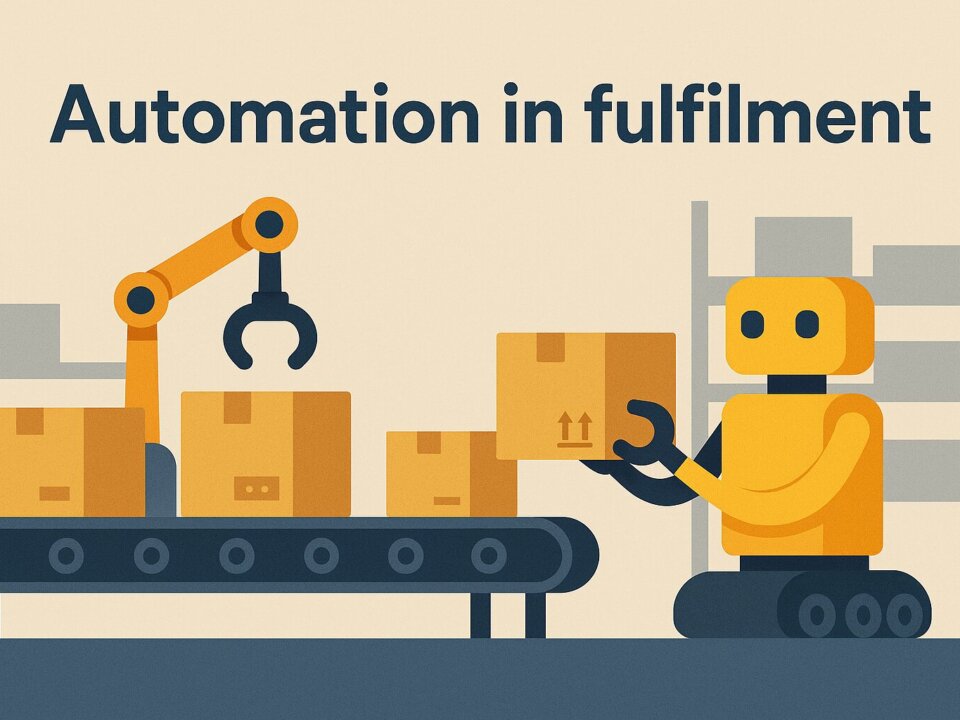3PL vs. 4PL

3PL vs. 4PL: The basics
In today’s globalised economy, companies are often faced with the choice between 3PL and 4PL. The difference between 3PL and 4PL is critical to designing efficient supply chains. Logistics service providers play a central role in enabling companies to organise their supply chains efficiently and focus on their core business. Two important concepts in this area are Third-Party Logistics (3PL) and Fourth-Party Logistics (4PL).
What is 3PL?
3PL stands for Third-Party Logistics and refers to companies that provide logistics services for other companies. These services typically include the transport, storage and distribution of goods. 3PL providers take on operational tasks and help companies to optimise their logistics processes and reduce costs.
They have specialised know-how and resources to efficiently overcome logistical challenges.
What is 4PL?
4PL, or Fourth-Party Logistics, goes one step further than 3PL. A 4PL provider acts as an overarching logistics manager and takes over the planning, control and optimisation of a company’s entire supply chain. 4PL service providers not only coordinate logistics, but also integrate various service providers, technologies and resources to provide a holistic supply chain management solution.
They act as a strategic partner and consultant for their customers.
Main differences between 3PL and 4PL
The main difference between 3PL and 4PL lies in the scope and depth of services offered. While 3PL providers focus on the execution of specific logistics tasks, 4PL service providers assume overall responsibility for the supply chain. 3PL providers implement operational processes, while 4PL providers strategically plan, analyse and continuously optimise the supply chain.
4PL service providers are usually more independent and can manage different 3PL providers to achieve the best possible solution for the customer.
Advantages of 3PL
Using 3PL service providers offers companies several advantages:
- Cost savings through economies of scale and specialised resources
- Access to expertise and state-of-the-art logistics technology
- Flexibility with fluctuating business volumes
- Reduction of investments in logistics infrastructure
- Focus on the core business
- Improved service quality and delivery times
Advantages of 4PL
4PL service providers offer additional benefits, especially for companies with complex supply chains:
- Holistic optimisation of the entire supply chain
- Strategic advice and continuous improvement
- Increased transparency and control over the supply chain
- Integration of different service providers and technologies
- Risk management and compliance monitoring
- Long-term cost optimisation through strategic planning
When 3PL is the optimal solution
The decision in favour of a 3PL service provider makes sense in various scenarios. This approach is particularly suitable for companies that want to outsource specific logistics tasks without relinquishing control of their entire supply chain.
Medium-sized companies with limited internal logistics resources often benefit from 3PL solutions, as they gain access to specialised expertise and advanced technologies without having to make large investments themselves. 3PL also offers attractive opportunities for companies looking to increase their operational efficiency.
In situations that require flexibility in storage and transport, such as seasonal fluctuations or unpredictable market developments, a 3PL partner can respond quickly and efficiently.
In addition, 3PL is a popular option for companies looking to expand quickly into new markets, as they can benefit from the logistics provider’s existing infrastructure and local knowledge.
4PL: The strategic choice for complex supply chains
4PL services are particularly suitable for companies with more complex supply chain management requirements. Large companies with global, multi-layered supply chains can benefit significantly from the comprehensive expertise and strategic approach of a 4PL partner.
If a company is looking to fundamentally reorganise its supply chain, 4PL offers the analytical capability and strategic know-how to plan and implement such far-reaching changes. In scenarios that require a strategic partnership in supply chain management, a 4PL service provider can act as an extension of the organisation and develop holistic solutions.
Companies that want maximum visibility and control over their supply chain will find partners in 4PL providers that utilise advanced technologies and analytics to deliver real-time insights and detailed reporting.
In situations where long-term, strategic optimisation of logistics is required, a 4PL service provider can continuously identify and implement potential improvements.
Challenges of implementing 3PL and 4PL
The integration of 3PL or 4PL service providers into the corporate structure also brings challenges.
A common concern is the loss of direct control over logistical processes, which may require an adjustment of internal procedures and management style. Implementation requires effective communication and smooth data exchange between the company and the logistics partner, which can present technical and organisational hurdles.
There is also a risk of potential dependency on the service provider, especially if they have specialised knowledge or unique resources.
Cultural differences between the company and the logistics partner can lead to adaptation difficulties and may require time and patience to overcome. Ensuring service quality and developing appropriate performance measurement systems are other critical aspects that need to be carefully managed. With 4PL solutions, there is the added complexity of integrating different systems and service providers, which requires particularly careful planning and implementation.
Despite these challenges, the benefits of 3PL and 4PL can far outweigh the initial difficulties if implemented correctly.
Conclusion: making the right choice
Whether 3PL or 4PL, the right choice depends on a company’s specific needs, supply chain complexity and strategic goals. 3PL offers operational efficiency and flexibility, while 4PL is a strategic partnership for overall supply chain management. Companies should carefully analyse their requirements to find the right logistics partner.
In some cases, a combination of both approaches may also make sense in order to utilise the advantages of both models and achieve an optimal logistics solution. As an experienced fulfilment provider, Lufapak supports you in optimising your logistics processes.
Contact us for a personalised consultation on your 3PL or 4PL needs.
Contact us now and get advice




